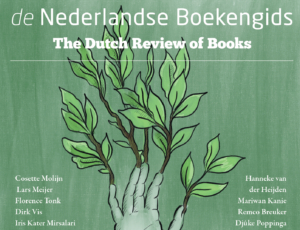The national Vidi grant is worth 800,000 euros, and enables experienced scholars to develop their own innovative line of research. With this funding, the laureates will set up their own research group in the coming five years on topics ranging from climate change to man as economic animal.
Lisa Becking: Marine Time Machine
To see today how marine life will respond in a future with higher temperatures and declining water quality, I am studying marine lakes – islands of seawater. This approach will provide new insights into the consequences of climate change on biodiversity.
Anar Ahmadov
Many governments, international organizations and private donors invest vast resources to enable developing country citizens to study in Western institutions. But while some beneficiaries later emerge as reformist democrats, others become reactionary autocrats. By educating their citizens, do Western institutions promote or preclude democracy in developing countries?
Michiel van Elk: Psychedelics in Perspective
Psychedelics can occasion mystical experiences and are increasingly used for the treatment of biomedical disorders. But exactly how these effects come about is not well understood. This project elucidates the psychological and neurocognitive mechanisms underlying psychedelics, the role of prior expectations and the short- and long-term consequences of psychedelic experiences.
Tazuko van Berkel: Economic animals - economic views on human being in ancient Greece
Who is Economic Man? Every economic paradigm presupposes an anthropology, a theory of human nature. This project explores the anthropologies presupposed and produced by ancient Greek economic texts, and the specific knowledge forms that shape these anthropologies.
About the Grant
Vidi is aimed at experienced researchers who have carried out successful research for a number of years after obtaining their PhDs. It is awarded by the Dutch Research Council (formerly known as: Netherlands Organisation for Scientific Research/NWO). This year, with an award rate of 16%, 81 experienced researchers received a Vidi grant. NWO selects researchers based on the quality of the researcher, the innovative character of the research, the expected scientific impact of the research proposal and the possibilities for knowledge use.
In recent years, the Dutch Research Council has been criticized for their funding structure which favors strategic research and highly competitive grants. As the KNAW-committee Weckhuysen concluded in their report: “Due to the tight science budget in our country, there is a run on NWO programmes, resulting in unacceptably low award percentages and an unpredictable outcome of selection procedures. Researchers have become heavily dependent on competitive research funding and projectification has become a feature of research, with researchers working from grant project to grant project.” Earlier this month, the commission Rinnooy-Kan also concluded that the success rate for applications is unacceptably low.

